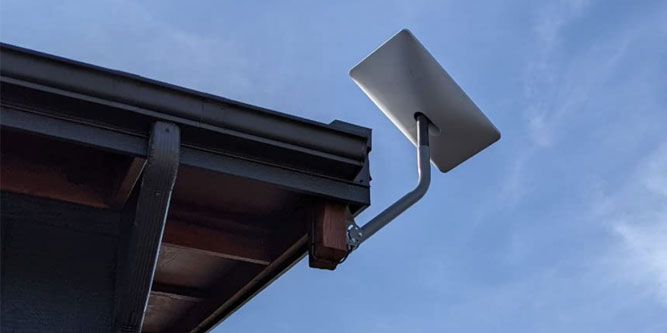Starlink has finally applied for a license to provide internet services in Zimbabwe. The government revealed this during a QnA session at the ongoing Zimbabwe International Trade Fair in Bulawayo.
Dr Gift Machengete, the director-general of telecoms regulator, POTRAZ, said in response to a question on Starlink customers being cut off:
“Then, why is Starlink not operating right now? The simple answer is Starlink had not applied and we would be foolish to then go and say come and apply, please. Now they have come to apply and we are in the process of looking at their application.
“We are also a regulator, we need to see how we regulate them. We also have to look at consumer and data protection. But, currently we are in the process of looking at their application.”
Earlier this month, Starlink users in the country were told by Starlink it was cutting them off for using the service in an unauthorised country.
Starlink customers complained the government’s actions are contradictory. On one hand, the government claims to support the adoption of ICT enabled digital services for economic growth, yet the ban disconnects Zimbabweans from online tools many rely on for work and study.
There has also been concern that the banning is motivated to shield incumbent internet providers from competition despite their high fees. Incumbent operators like Liquid Telecom, TelOne, Telco and Dandemutande charge customers at least 3 times the Starlink monthly subscription.
The government confirmed asking Starlink to cut off Zimbabweans:
“What we have just done is that those who have been using Starlink terminals were asked to have Starlink switch them off because we cannot allow illegality”
“I think they have been switched off and maybe there is some outcry. But, you see those were illegal and they will be regularised when they are licenced”.
Zimbabwe’s fears of US interference
There has been mention that the Zimbabwean government fears allowing a US owned company to operate the most accessible internet service in the country. The fear is it would make the Zim government vulnerable to interference. The relationship between the two is not the most cordial. And Starlink works very closely with the US government on a number of things.
The counter argument to this has been that at $600 for a Starlink kit, few Zimbabweans can afford it anyway, so it would never dominate. The cheaper monthly subscriptions count for nothing if you can’t buy the kit. This initial price issue could be fixed if financial institutions work out some credit packages.
Households could also pool resources to buy and share a single kit via some local neighbourhood network or sorts (illegal yes, but hey). 4 houses sharing would knock the price down to $200 a household. Zimbabweans already do borehole sharing. Potential for Starlink to dominate the market is there.
As for US surveillance, Zim government departments already rely on Gmail, Facebook, X (also owned by the Starlink owner, Elon Musk) and other such apps for official communication. Starlink would just be one more thing.
It’s not that these fears are unfounded. The US itself has made such moves against Chinese companies like Huawei and other Chinese companies. And the Chinese have reciprocated.
When will Starlink be licensed?
This is hard to say. After applying, it could take several months for Starlink to be licensed. As you probably figure from the above, Starlink licensing is not just a commercial issue. It’s also political.
Earlier this year, the Minister of ICT, Tatenda Mavetera seemed to indicate the government is keen to have a similar satellite technology internet provided by a friendly-to-Zim country like China or Russia. It’s possible the government will try to buy some time to see if its friends can match Starlink. Zimbabweans will have to keep the pressure on.
Or maybe they really have had a change of heart, and Starlink will be live within a month or so. What do you think?
Broadband-techim

